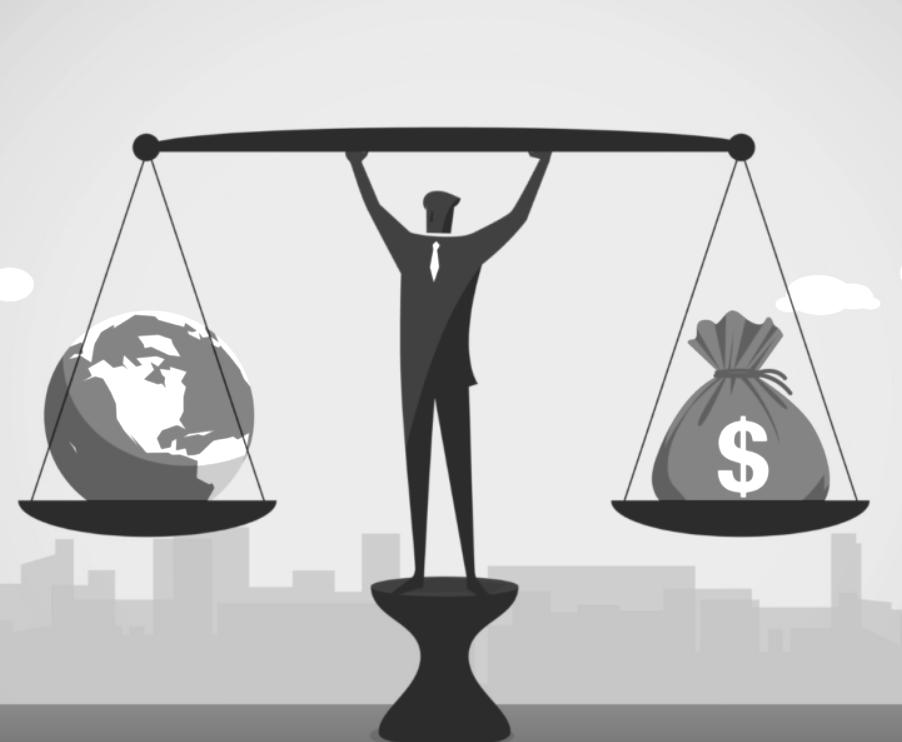
Kleptocracy, Inc.
The Atlantic
04/14/2025
Trump isn’t just disregarding old norms for his own sake. He’s making it easier for others to cut corners too. From the beginning of his career, Trump participated enthusiastically in the opaque, offshore world of shell companies and anonymous bank accounts, a milieu that has always attracted autocrats, criminals, and anyone else who seeks to hide their money. As of 2018, more than one out of every five condos in Trump-branded buildings had been purchased by shell companies whose true owner was unknown, and anonymous owners continued to buy into his businesses during his first term as president.
Now his administration is helping other businesses that operate in the shadows to stay there. Trump’s Treasury Department announced last month that it would no longer enforce the Corporate Transparency Act, hampering recent congressional efforts to end money laundering, tax dodging, and other lawbreaking by anonymous investors. In an executive order, Trump suspended enforcement of the Foreign Corrupt Practices Act, which prohibits American and foreign companies from paying bribes to do business. The Department of Justice is also disbanding a task force set up to administer sanctions on Russian oligarchs close to Vladimir Putin.
Oversight will be removed from many domestic financial and government institutions too. Trump ordered a full work stoppage at the Consumer Financial Protection Bureau, which had been created to protect consumers from manipulation by banks and other financial institutions He has fired top officials overseeing ethics, whistleblower protections, and labor rights, including the heads of the Office of Government Ethics, the Office of Special Counsel, and the Merit Systems Protection Board. Meanwhile, Justice Department officials are drafting plans to reduce investigations of fraud and public corruption, which means that prosecuting crooked officials will be more difficult. Cuts to the IRS mean that tax fraud will also be harder to identify and prosecute. Just last week, the Justice Department announced that it would curtail investigations of cryptocurrency fraud and disband its National Cryptocurrency Enforcement Team.
One particular trump backer has already profited from this new world in which conflicts of interest just don’t matter. Elon Musk, who has no mandate other than the personal blessing of the president, now has enormous influence over the very same government institutions that have long subsidized and regulated his companies. Musk slashed jobs at the National Highway Traffic Safety Administration, the federal agency that oversees auto safety and crash investigations, including those involving his own electric-vehicle company, Tesla. Musk oversaw mass firings at other regulatory agencies that had launched more than 30 investigations into his companies, which include SpaceX and Neuralink.
At the same time, major government agencies, including the General Services Administration and the Federal Aviation Administration, are using or were considering the use of Starlink, a product of SpaceX. The State Department planned to buy armored Teslas. One Commerce Department official, Evan Feinman, resigned last month because of an administration push to use Starlink to provide rural broadband services. “Stranding all or part of rural America with worse internet so that we can make the world’s richest man even richer is yet another in a long line of betrayals by Washington,” he said. Musk isn’t breaking the law, and he doesn’t have to say or do anything to encourage these changes. His new role as America’s premier oligarch means that all kinds of people and agencies will kowtow to him anyway.
Musk has also had real influence over American foreign policy. If they are upheld by courts, DOGE’s cuts to USAID, to the U.S. Institute of Peace, and to U.S.-backed foreign broadcasters, including Voice of America, will all deliver deep blows to American diplomacy and soft power, in addition to the damage they will do to international health care and humanitarian aid. The end of American-funded broadcasting by itself will particularly benefit China, which competes with the U.S. in the realm of narratives and ideas as well as economics. It’s curious that Musk was in a position to make these decisions, all so favorable to Chinese soft power, even though he has important ongoing business relationships in China. His “gigafactory” in Shanghai, opened with hundreds of millions of dollars in Chinese loans, has become Tesla’s largest production site.
But in Trump’s administration, outside interests are no big deal. To take one of many examples, FBI Director Kash Patel, during his Senate hearings, revealed that he has accepted $1 million to $5 million in stock as payment from the corporate parent of Shein, a Chinese e-commerce company that has been accused of using forced labor in its supply chain; he told senators that he would not divest. Patel has also consulted for the Czechoslovak Group, a foreign arms conglomerate that J. D. Vance, when he was still a senator, said had “ties to the inner circle of Russian President Vladimir Putin.” Although Patel, in his new role, will be responsible for countering Russian and Chinese influence and espionage operations, 51 Senate Republicans nevertheless confirmed him.
But these are only the conflicts of interest we know about. How many people benefited last week from advance knowledge that Trump would reverse his position on tariffs? How many others are making other stock-market bets based on their access to government information? We don’t know the answers, and Trump’s Department of Justice is unlikely to want to find out. We are living in the dark, just as people do in other kleptocracies, and this changes everything.
The right question to ask about Trump’s tariff policy is also financial: How will this enormous change to American trade policy benefit Trump? One answer is already clear. The countries and large companies damaged by these tariffs, some of which could face huge losses or even bankruptcy, will have an enormous incentive to play up to the president, to offer him political donations, and maybe even to offer business deals to him, his family, or his friends in order to get some kind of exception made for themselves or their industry.